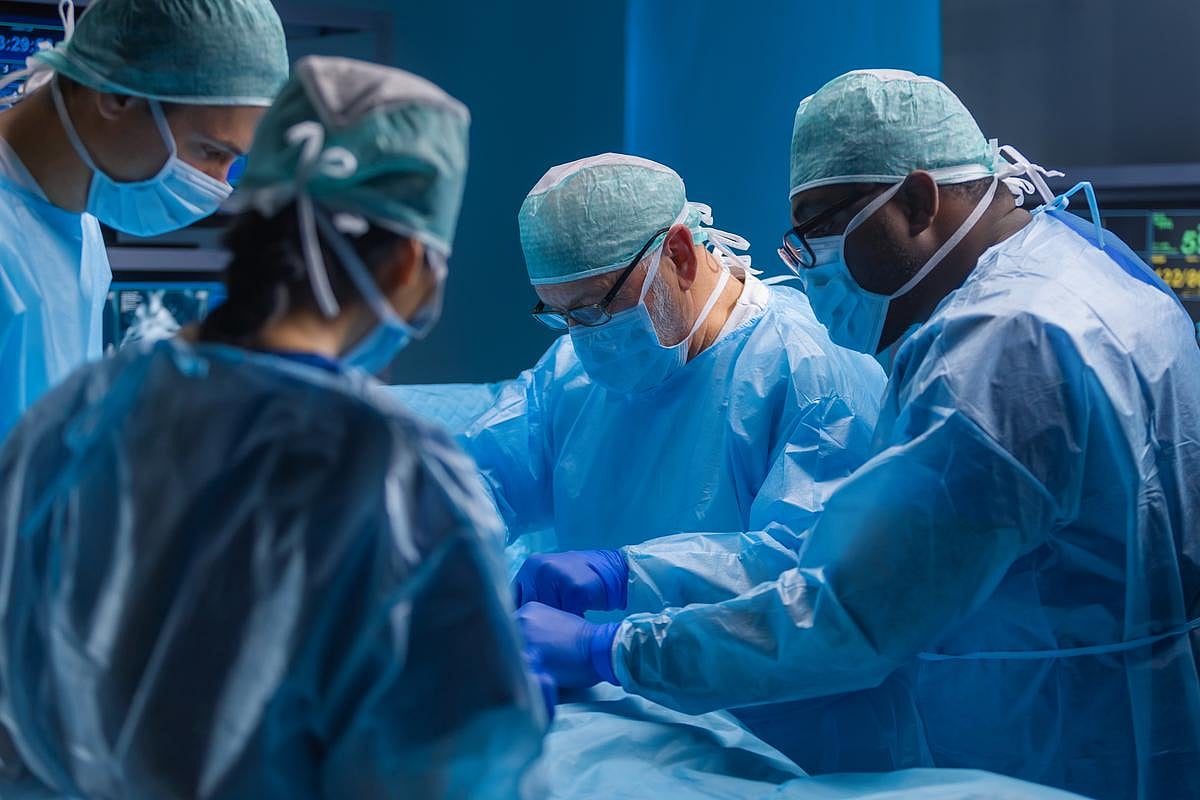We are now open at our new location. Visit us at 1914 Freedom Road (just down the road from our previous building).
Thank you for your support as we transition into this new space!
Get Healthy!

- I. Edwards
- Posted May 19, 2025
Doctors Perform First-Ever Human Bladder Transplant in U.S.
Doctors in Southern California have performed the first human bladder transplant, offering new hope to people with serious bladder problems.
The surgery was done earlier this month by two doctors from the University of California, Los Angeles (UCLA) and the University of Southern California (USC), The New York Times reported.
The patient, 41-year-old Oscar Larrainzar, had lost most of his bladder due to treatment for a rare form of bladder cancer.
“I was a ticking time bomb,” Larrainzar said. “But now I have hope.”
Doctors plan to do four more bladder transplants as part of a small trial. They want to understand possible risks, including how well the bladder works and if the body rejects the new organ.
Dr. Inderbir Gill from USC called the surgery “the realization of a dream.” He said it could help people with long-term bladder problems like pain, infections and inflammation, The Times said.
Usually, patients who lose their bladder have part of their intestine repurposed, providing a new way to urinate.
But that method has downsides. Bowel tissue contains bacteria and is not sterile, which can lead to health problems in up to 80% of patients. It can also cause digestive issues, The Times reported.
This new transplant surgery was developed over several years. The doctors first practiced on pigs and then tested the method on donated human organs.
One big challenge was carefully removing the bladder with its blood vessels so it could be safely transplanted.
To make the surgery safer, the doctors connected the bladder’s main blood arteries together while the organ was on ice. That way, they only had to attach two arteries instead of four when placing it in the patient.
The transplant team got their first match in early May. They picked up the donor bladder and a kidney from an organ center, then completed an eight-hour surgery at UCLA. Larrainzar needed both organs because he had kidney failure and severe bladder damage, The Times said in a new report.
The results were promising. The new kidney started working right away, and Larrainzar began losing excess fluid.
His creatinine level, a key sign of kidney function, improved fast. Even more surprising, just two days after going home, he felt he was able to urinate on his own.
“He peed!” Dr. Nima Nassiri, Larrainzar's other surgeon, said excitedly. Dr. Gill replied, “No way! What the hell?”
Still, experts say this kind of transplant may not be right for everyone. People who get transplants must take drugs for life to stop their body from rejecting the new organ. That can come with side effects.
Dr. Rachel Forbes, a transplant surgeon at Vanderbilt University Medical Center who was not involved in the transplant, said there are already options for people without bladders, and without the downside of requiring immunosuppression.
Unless a patient is going to be on those medications anyway, she told The Times, “I would be a little bit nervous that you would be exchanging some complications for others.”
Doctors also weren’t sure if Larrainzar would be able to feel when his bladder was full, or empty it normally. At first, they planned to use catheters or special devices to help him. But his body's reaction surprised them all.
"It’s the first time he has been able to pee in seven years," Gill told The Times. "For all of us, this is huge."
More information
Organ Donor.Gov has more on organ donation statistics.
SOURCE: The New York Times, May 18, 2025










